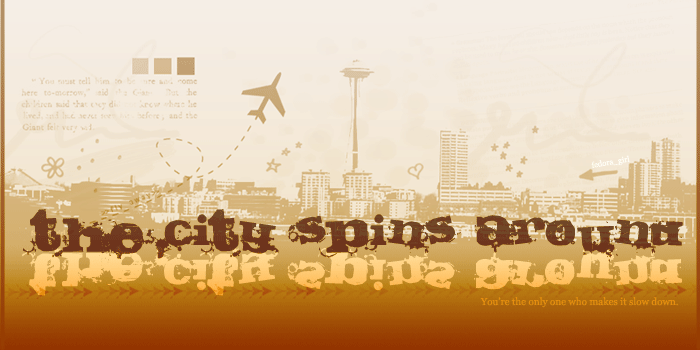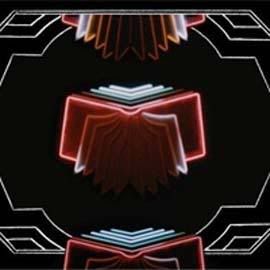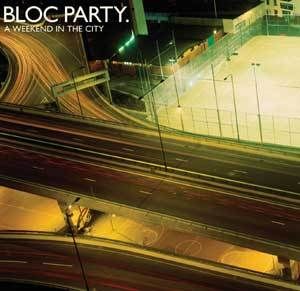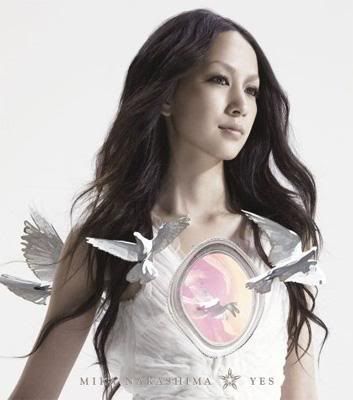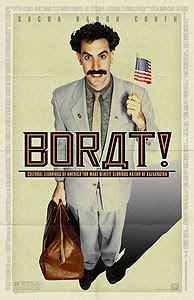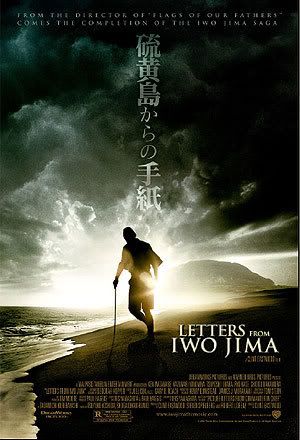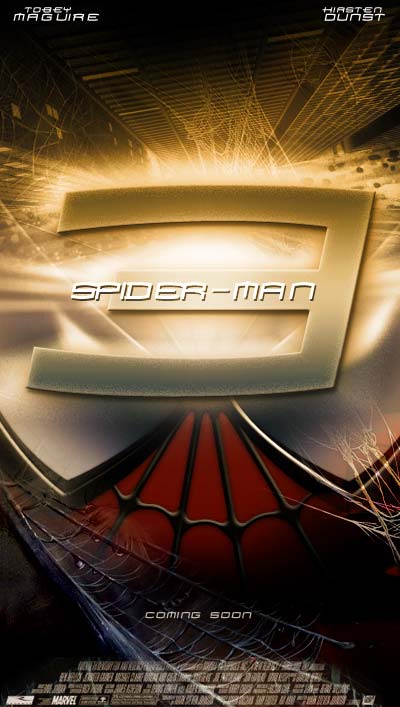Sunday, December 11, 2005
A History Of Violence
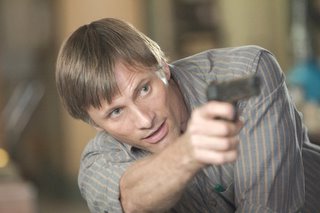 Viggo Mortensen in "A History of Violence"
Viggo Mortensen in "A History of Violence"I've watched a couple of films in recent weeks that I've admired but not necessarily liked. One of those films was "Closer", a bruising, fiercely articulate film about deception, infidelity and emotional brutality. The other film which caught my admiration was "A History of Violence", a David Cronenberg tale about well, violence.
"History" is a tale about Tom Stall (Viggo Mortensen), a Midwestern family man and owner of a popular neighborhood restaurant who lives a quiet but fulfilling existence in Millbrook, Indiana. With a loving and beautiful lawyer wife Edie (Maria Bello), a cute-as-a-button daughter Sarah (Heidi Hayes) and a meek but well mannered teenage son Jack (Ashton Holmes), this postcard-perfect portrait of small-town Americana couldn't be any more picturesque. But things are about to change...
One night, two ruthless killers (Stephen McHattie and Greg Bryk) draw their guns in a robbery attempt at Tom's diner. But Tom, in a virtuoso (and heroic) moment that seemed to even surprise himself, despatches and kills both with breathtaking speed, deadly force and some measure of brutality.
 But much to his chagrin, he is plastered all over the news for his heroics and he gets huge and unwanted publicity over his actions. The publicity also brings about the appearance of a mysterious trio of strangers who follow the Stalls' every move. These include Carl Forgarty (a malevolent and very good Ed Harris), a badly scarred Irish mobster from Philadelphia and two hoods in his employ who all insisted that they knew Tom and that he really was someone named Joey.
But much to his chagrin, he is plastered all over the news for his heroics and he gets huge and unwanted publicity over his actions. The publicity also brings about the appearance of a mysterious trio of strangers who follow the Stalls' every move. These include Carl Forgarty (a malevolent and very good Ed Harris), a badly scarred Irish mobster from Philadelphia and two hoods in his employ who all insisted that they knew Tom and that he really was someone named Joey.As this situation is confronted, secrets will be uncovered, identities will be questioned and lifes will be taken as the situation spins uncontrollably towards a fitting climax with another mobster in Philadelphia by the name of Ritchie Cusack (William Hurt).
I guess I am being deliberately vague here in describing the revelations that will follow and the relationships of all these characters involved. In my opinion, it is probably best left to audiences to discover for themselves the plot and the twists which are to follow. Now that I've got the plot out of the way, I'd talk about what I admire about this movie.
There is quite a bit to admire about this film. Let me first state that I find it quite a relief that David Cronenberg decided to tell this tale in a relatively linear story arc which made it easy to follow everything. It might seem strange to praise someone for telling a story straight but one has to take into account, director Cronenberg's reputation for quirkiness (and seeming fetish for squirmish and grotesque uses for body parts). Cronenberg tells his story expertly here, with subtle signs of unease that continues to build throughout the film.
 But he was also more than ably assisted by a group of splendid actors who bring the characters on screen to life. I never took much notice of Viggo Mortensen. I thought that his Aragorn in LOTR was too much of a straight-forward hero to suggest anything about how good an actor Mortensen really was. Which might be why I was slightly surprised by how good Mortensen was in this role. In his potrayal of Tom, Mortensen first impressed upon us the image of an all-good average American family man before creating changes in tone that could suggest otherwise. Now this is good acting. For until his identity was unveiled, I was left confused as to who Tom really was. Was he Tom pretending to be Joey to protect his family? Or was he really Joey pretending to be Tom all the time but finally forced to confront his past? Consider too the rough stairway sex scene between Mortensen and Bello and contrast this with the playful and tender sex scene earlier between the two. Spot the contrast and tell me what this says about Tom and possibly Edie as well.
But he was also more than ably assisted by a group of splendid actors who bring the characters on screen to life. I never took much notice of Viggo Mortensen. I thought that his Aragorn in LOTR was too much of a straight-forward hero to suggest anything about how good an actor Mortensen really was. Which might be why I was slightly surprised by how good Mortensen was in this role. In his potrayal of Tom, Mortensen first impressed upon us the image of an all-good average American family man before creating changes in tone that could suggest otherwise. Now this is good acting. For until his identity was unveiled, I was left confused as to who Tom really was. Was he Tom pretending to be Joey to protect his family? Or was he really Joey pretending to be Tom all the time but finally forced to confront his past? Consider too the rough stairway sex scene between Mortensen and Bello and contrast this with the playful and tender sex scene earlier between the two. Spot the contrast and tell me what this says about Tom and possibly Edie as well.The other supporting roles in the cast too did a great job in their roles. Bello (whom I have never noticed either) oozes ample warmth and love at the beginning of the film before showing appropriate uncertainty and fear for what was to follow.Holmes, as the teenage son, also shows laudable range that suggests uncertainty, fear and anger. And Ed Harris? Well, he is nothing short of his usual self, delivering a flawless performance that once again he is one of the best character actors in the business.
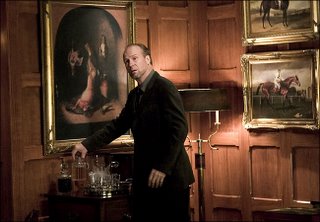 And yet the one who could potentially have delivered a tour de force in this film must really be William Hurt. Much had been made (by critics) over his brief but unforgettable performance in the final act of the film. Many have described his performance as pure scenery-chewing mastery, but a number have also described his act as OTT and overtly showy. For me, I am more inclined to go with the former although I could could see why people might see Hurt as showboating. Reactions really do depend on each individual's taste and perception but I think no one can deny that Hurt's performance is so fun that it really does add to the film's enjoyment, whether likeable or not.
And yet the one who could potentially have delivered a tour de force in this film must really be William Hurt. Much had been made (by critics) over his brief but unforgettable performance in the final act of the film. Many have described his performance as pure scenery-chewing mastery, but a number have also described his act as OTT and overtly showy. For me, I am more inclined to go with the former although I could could see why people might see Hurt as showboating. Reactions really do depend on each individual's taste and perception but I think no one can deny that Hurt's performance is so fun that it really does add to the film's enjoyment, whether likeable or not.Another thing that I liked about "History" is Cronenberg's communication of his ideas and the thoughts they provoke. "History" had a number of points to make (Cronenberg had openly said in an interview that "History" had three levels: The title refers (1) to a suspect with a long history of violence; (2) to the historical use of violence as a means of settling disputes, and (3) to the innate violence of Darwinian evolution, in which better-adapted organisms replace those less able to cope.) and Cronenberg, in my opinion, brings these expertly across. While the first two points should be obviously enough to anyone who watches the film, the third might not come across that easily. But consider how Tom despatches of the threat of the two killers in his diner and again, how he finished off various other opponents in later parts of the film. Those situations were life and death, killed-or-be-killed dilemmas. And what about Jack's stunning response to being bullied in school? Only the strongest will survive?
 While I have stated why I admired the film, I have yet to say why I didn't quite like it. Well, the film felt cold to me. Although it did leave me thinking on several issues that it raised, I didn't find myself as engaged as I thought I might be. And I usually don't like films that do not stir emotions within me when I leave the cinema.
While I have stated why I admired the film, I have yet to say why I didn't quite like it. Well, the film felt cold to me. Although it did leave me thinking on several issues that it raised, I didn't find myself as engaged as I thought I might be. And I usually don't like films that do not stir emotions within me when I leave the cinema.So could I recommend it? I am not too sure. There are bits of violence here which audiences might find uncomfortable, although to me, they perfectly accentuate the ugliness of violence (How many stylised action movies have we seen that blows away people like they are not human?) and the audience is forced to confront a moral issue as we shown the bloody aftermath of some of Tom's actions (which, let's be honest, we want to see): Does it make it alright to kill, disfigure or maim just because a "good" person is doing it to a "bad" guy?
And finally, I also urge people who are going to watch the movie to consider the final scene. This is the one scene which I find I couldn't agree with some critics who reviewed the movie. Some have described it as hopeful. Some have described it as redemptive and yet chilling. For me, what I saw was uncertainty, pain and perhaps, reconciliation. Is reconciliation the same as hope? And how could redemption be found after all that had happened? But if redemption was truly the point of that scene, then yes, I do find it truly chilling.
7/10
Batman spun on 5:54 PM.
